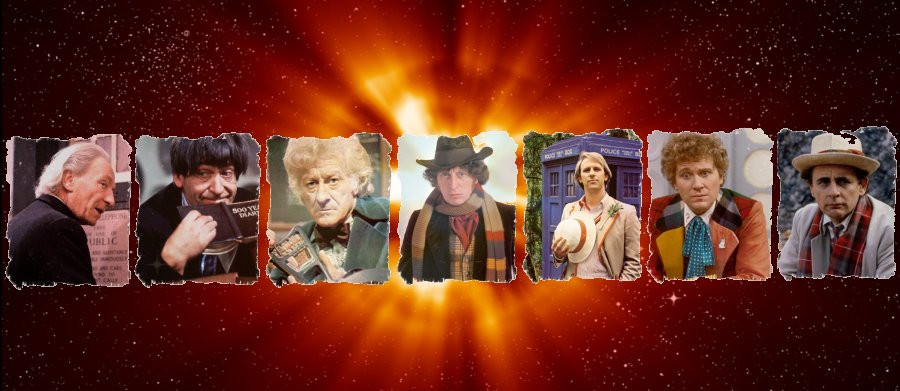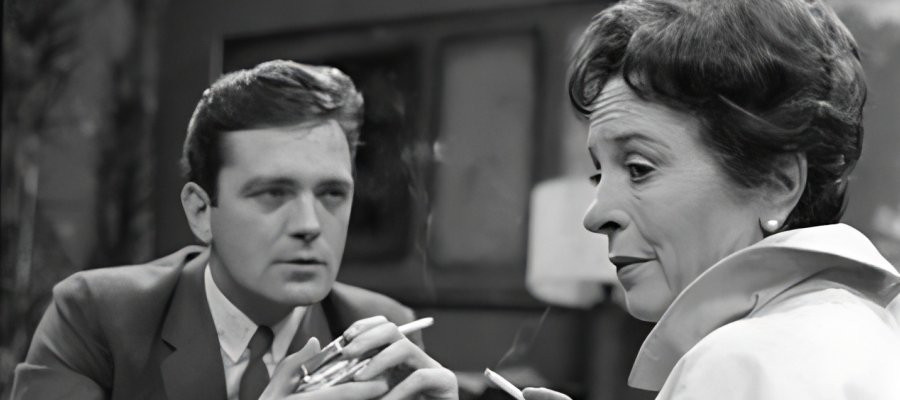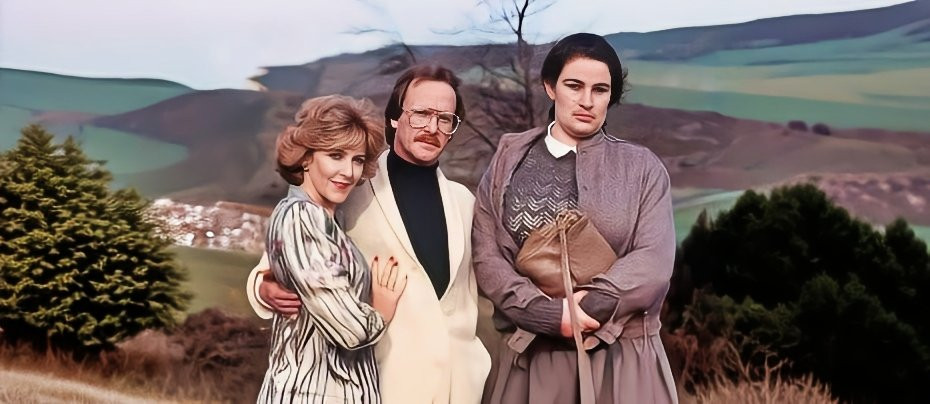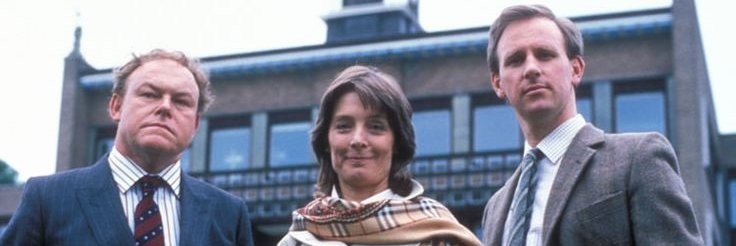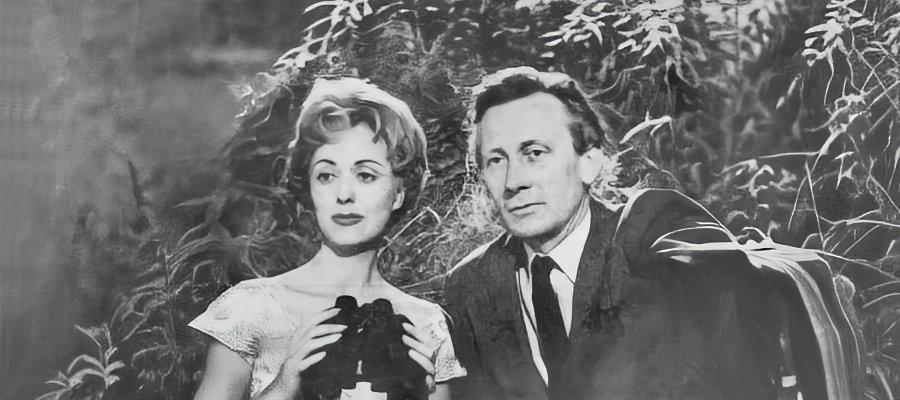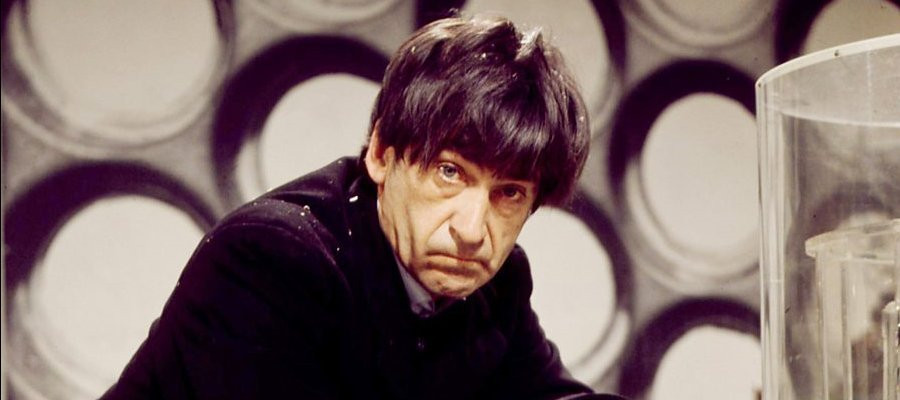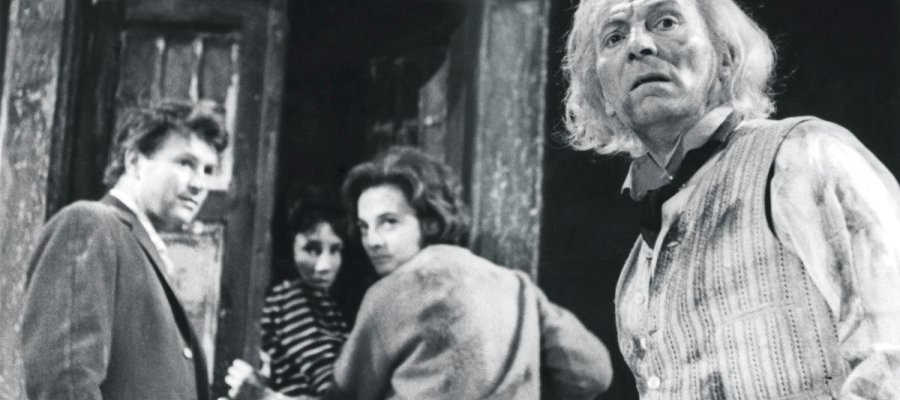
Doctor Who (The Classic Series)
1963-1989 - United KingdomAmongst his many important contributions to television history, perhaps then BBC Head of Drama Sydney Newman’s most lasting legacy was the creation of a single character. And with that character the foundations for arguably the most flexible and enduring drama series format in the entire history of the medium. That character was "The Doctor". The format: The quite literally endless possibilities of those two most potent of concepts, Time and Space.
Working in consultation with Newman, the basics of the Doctor's character and the world which he was to inhabit was worked up into an initial format document by BBC staff writer/adapter C.E. Webber. This was later refined further by script editor David Whittaker, and by July of 1963 the all-important lead role had been cast. - Chosen by fledgling producer Verity Lambert to embody Newman's mysterious time traveller, was the highly respected stage and screen character actor William Hartnell. - An inspired choice. For by dint of his immense experience in the acting profession, plus his high profile reputation to the average viewer, Hartnell easily provided the all-important suspension of disbelief needed if Doctor Who's fantastical central premise was to be accepted by the average viewing audience.
The real defining moment in the fledgling series history came not with the opening episode on 23 November 1963, when the Doctor whisked away two schoolteachers and their pupil in his TARDIS (Time And Relative Dimensions In Space) machine, or even the entirety of writer Anthony Coburn's and director Waris Hussein's first fully transmitted story, rather it arrived with story two: an epic adventure set upon the distant soil of a harsh and alien world, a story originally titled by writer Terry Nation as "The Mutants", a title which would more or less become lost to history following the naming, and the first appearance of the creatures which would forever seal the fate of Doctor Who as a 'science-fiction' series. Those creatures were a race of murderous mutated beings from the distant planet Skaro, encased forever in mechanised armoured shells in order to survive. They were the Daleks, and they (and by extension, the series itself) became a nation-wide overnight sensation!
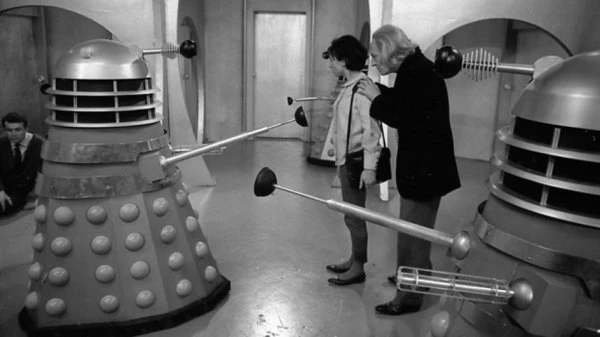
It's future direction unalterably laid down, the series looked set fair to continue its cosmic wanderings without undue problems until Hartnell announced after three years in the pivotal lead role, his intention to retire from the show on the grounds of his deteriorating health. The series was about to embark upon a course of action which was destined to consolidate its ability to reinvent itself and reinvigorate the core concept far into its then, unimagined, future.
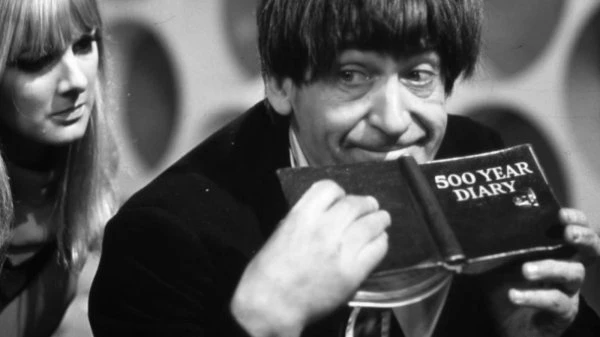
The year was 1966 and as the weakened form of Hartnell's Doctor collapsed to the floor of the TARDIS console room, viewers were stunned by an inexplicable transformation. Literally before the eyes of a confused and uncomprehending nation the familiar image of the Doctor altered, transformed, became quite literally...someone else. That someone else was Hartnell's replacement, respected character actor Patrick Troughton. - With an audacity of creative verve hitherto undreamed of in the annals of television history, the Doctor Who production team had instigated the impossible. They had retired their all-important lead actor in full view of their viewing audience and replaced him with an entirely different, younger man. - It was a gambit which should have been impossible to execute with any hope of success, - but what was to become amazingly familiar over the passing of the years to the show's growing legions of fans, was that Doctor Who, and surviving the seemingly impossible -not just in story terms, were breathtakingly synonymous. With the concept which would eventually become known as Regeneration, the way was clear for a relatively smooth changeover of lead actors -and it was needed.
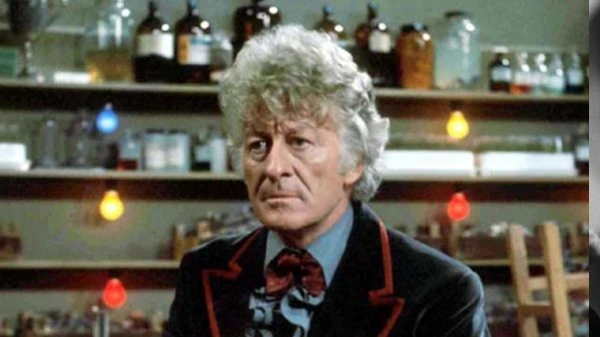
From Troughton's 'cosmic hobo', the mantle of the Doctor passed to noted comedy actor Jon Pertwee for a dashing and action orientated Time Lord perfectly mirroring the flamboyance of the early 70's - and still the changes came; from Pertwee's man of action, Tom Baker's eccentrically exuberant performance marked him as the longest serving, and arguably most popular incarnation of the planet Gallifrey's most famous errant son, (a popularity which reached a peak with the story "The Ark in Space", which saw viewing figures of a staggering fourteen and a quarter million). But nothing remains constant, and even the longest serving Time Lord had to eventually pass on his TARDIS key.
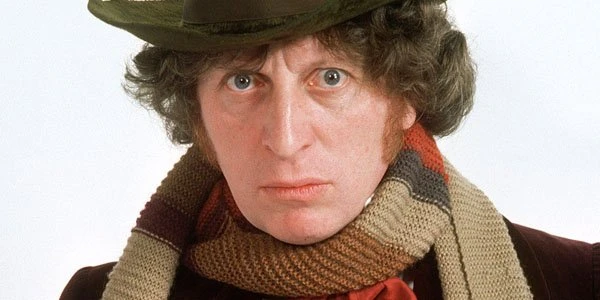
With a combination of Baker's departure and a steadily declining interest and commitment to the show from the powers that be within the BBC, nothing was ever quite the same again. - Three further actors were to portray the Doctor in the wake of Baker's resignation, but the forces of entropy which had plagued the TARDIS' stability for years were finally taking a profound effect. Audience numbers began to dwindle, although this was not necessarily the fault of the actors involved as each they found had to overcome difficulties not faced by their predecessors.
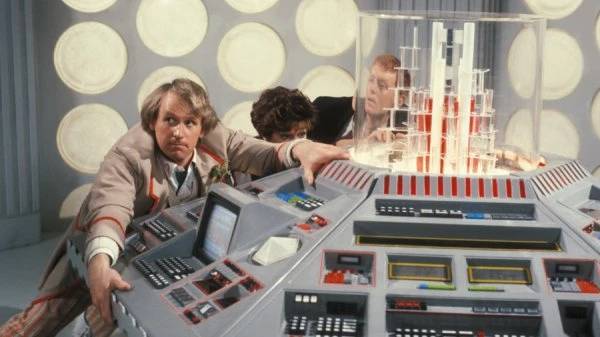
Peter Davison (at 29 the youngest actor to portray the Doctor) followed Tom Baker after the longest ever 'between season' gap only to find his show, after one season, was moved from its customary Saturday afternoon slot to two midweek episodes. As a result of this Davison's first season figures of an average 9.5 million fell to around 7 million in season twenty. After just three short seasons Davison gave up the part and was succeeded by the flamboyant figure of Colin Baker.
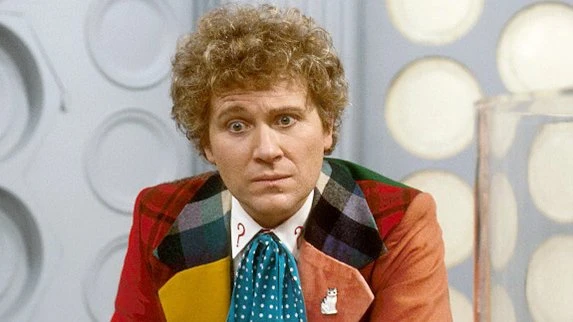
At the behest of Executive Producer John Nathan Turner, Baker's costume was made to reflect his larger-than-life personality. Described as the epitome of bad taste, the Doctors multi-coloured jacket and trousers was perhaps, in retrospect, a huge mistake. It was very difficult to take seriously a character whose outward appearance resembled that of a clown. Following on from Bakers first season, the next, season twenty two, saw another departure from the series usual format. BBC1 controller Alan Hart made the decision to increase the episode length to 45 minutes in the hope that it would boost figures and increase oversea sales. But this, coupled with a series of dull and uninspiring scripts, led to the show taking an extended break. Colin Baker returned for one more season of 14 episodes under the umbrella title of "The Trial of a Time Lord" before being replaced in a blaze of publicity by diminutive Scots actor Sylvester McCoy.
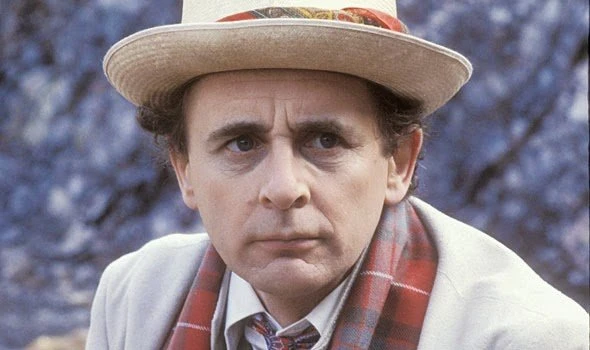
The series returned to a midweek slot, but this time it was up against ITV's jewel in their crown -Coronation Street. The result was that figures plummeted to an all-time low of around 4.5 million. - Doctor Who was finally cancelled as an on-going series by the BBC in 1989. To many, the show's loss was seen as a premature curtailment of a concept which, by its very nature, still had the rich possibility of infinite tele-visual life . But it seemed with the wisdom of the Time Lords themselves, the upper echelons of BBC power held firm to their decree.
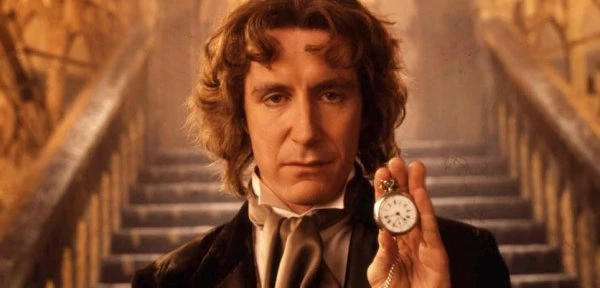
Although there was a BBC/US co-produced TV Movie, which arrived amid much ill-considered hype (compounded by a poor script, lacklustre performances and changes to the Doctor's character), in the mid 90's, most of Doctor Who's legion of fans had to be content with the seemingly never ending stream of books, videos and more audio dramas offered up to them. The merchandising of Doctor Who far outlived the original series, and was arguably a powerful indication to the powers that at the BBC that there's still life in the old girl yet. The unexpected but welcome announcement in 2004 of a brand new, high profile flagship series of Doctor Who guided by award-winning writer Russell T. Davies and starring the highly talented Christopher Eccelston for March 2005 proved something Doctor Who's legion of fans had always known: The universe is filled with infinite possibilities...
Anthony Ainley (1932 - 2004)
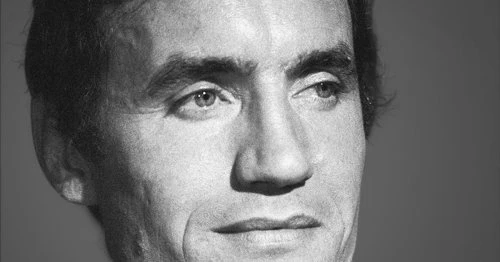
Anthony Ainley was best known to television viewers as The Master, the renegade Time Lord who was Moriarty to Doctor Who's Sherlock. The part had previously been played by Roger Delgado from 1971 until 1973 when his untimely death, from a car crash, meant that the character was written out of the series for a number of years. Ainley first portrayed The Master in the 1981 serial The Keeper of Traken and appeared in almost every season up until the cancellation of the original series in 1989, by which time he had become a cult figure.
Anthony Ainley was born on 20 August 1932. His father, Henry Ainley, was a distinguished Shakespearean actor famed for his good looks and distinctive voice. Young Anthony got his first taste of acting at a young age, singing in a school production of Gilbert and Sullivan's HMS Pinafore. On leaving school he went to work as an insurance clerk but soon decided to follow in the family footsteps and studied at RADA where he won the Fabia Drake Prize for comedy. After graduating he worked in rep and made his television debut in 1964 as a police officer in It's Dark Outside.
His swarthy appearance meant that he was often cast in villainous roles, particularly in horror films. On television he starred in series such as Elizabeth R, Secret Army and The Avengers. But it was his appearance as the Rev Emilius in The Pallisers which led to his role in Doctor Who. "Emilius was a rather smarmy devious character," he recalled. "The producer John Nathan-Turner was working on it and remembered me when he took over Doctor Who. Later he asked me to play The Master. There was a similarity between the two characters. Both wore a superficial air of charm and dignity which concealed a wicked sly nature underneath."
He appeared as The Master for nine years opposite three incarnations of The Doctor. Ironically Ainley's family had a number of connections with the series. His father had been Jon Pertwee's godfather and his brother Richard had coached Tom Baker at drama school. He himself had been coached in an amateur production by William Hartnell. After leaving the series Ainley continued to appear on television and spent much of his time attending Doctor Who conventions. Ainley's great love of the role is often cited in documentaries and DVD commentaries. Anthony Ainley passed away on 3 May 2004 aged 71. He never married. He once joked that he didn't like the three rings of marriage: "the engagement ring, the wedding ring and the bickering."
Seen this show? How do you rate it?
Seen this show? How do you rate it?
Published on December 7th, 2018. Written by Laurence Marcus and Peter Henshuls (1999 & 2005) for Television Heaven.



